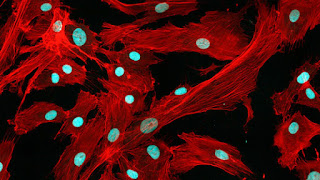In the last few years, many researchers have discovered that mesenchymal stem cells (MSCs) hold the key to treating many serious diseases such as diabetes, Parkinson's disease, and multiple sclerosis. According to the study, ‘Prevalence of Parkinson’s disease (PD) across North America”, published in July 2018 in the journal Nature, the number of people suffering from PD is expected to reach 930,000 in 2020 and 1,238,000 in 2030. Thus, high prevalence of such diseases is also expected to aid in growth of the mesenchymal stem cells market.
While no one yet knows exactly how the cells work, scientists are excited about the potential benefits of using MSCs as treatment modalities. In particular, the discovery that stem cells can differentiate into other cell types has implications for the field of regenerative medicine. The potential of MSCs to provide treatments for age-related diseases is exciting. Thus, increasing geriatric population is also expected to aid in growth of the mesenchymal stem cells market.
While stem cells from adults hold the most promise for use in treating human illnesses, the discovery that adult stem cells can be directed to treat specific diseases has provided doctors with a new approach to the treatment of patients with life-threatening diseases, which in turn is expected to aid in growth of the mesenchymal stem cells market. Mesenchymal stem cells are found in the bone marrow in rich supply. Because the cells are continually being used to make blood, tissue, and organs, they are not only rich in blood, they are also rich in antigens. This allows adult stem cells to directly apply their healing properties to a host of diseases.
Adult MSCs have the potential to replace diseased or otherwise damaged adult stem cells in a variety of tissues throughout the body, including muscle, bones, and organs. Various researches have revealed exciting potential in using these cells to treat a range of debilitating diseases. For example, since MSCs can be directed to the myeloid tissues of the bone marrow, they can help to repair and regenerate tissue and organs that are injured or became infected. These studies are currently underway and have the potential to provide a major breakthrough in the treatment of many serious diseases, boosting growth of the mesenchymal stem cells market.
MSCs are also being tested to directly apply to a patient's spinal cord to promote regrowth of bones and other skeletal tissues. This is done through the introduction of specialized cells into the spinal cord. Since the specialized cells that are made in the laboratory from MSCs can be directed to a number of myeloid tissues, they can provide a direct means of repairing and regenerating spinal cord injury, spinal stenosis, cervical spondylosis, spinal arthritis, etc. The long term effects of mesenchymal stem cells transplantation on the spinal cord are not yet known but the studies so far are very promising and the technology could very soon be available for clinical trials.



No comments:
Post a Comment